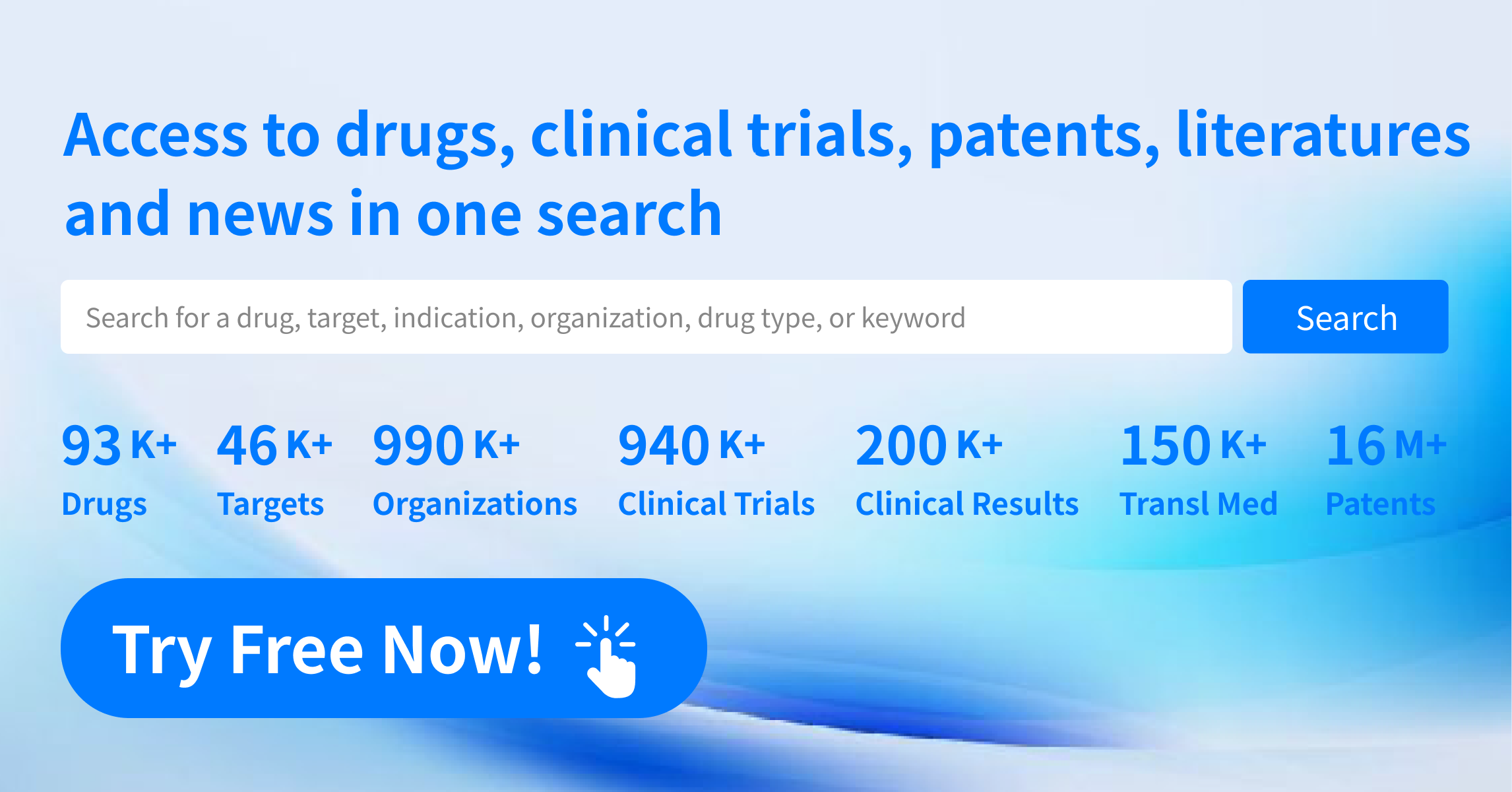Kelun-Biotech: First Dual-Antibody ADC in Collaboration with Merck Submits China IND
September 5, the National Medical Products Administration’s (NMPA) Center for Drug Evaluation (CDE) announced that the clinical trial application (IND) for SKB571, an injectable drug from Kelun-Biotech, has been accepted. Last month, Kelun-Biotech announced that Merck exercised its exclusive option on the SKB571 project. Merck will pay Kelun-Biotech $37.5 million and additional milestone payments upon achieving specific development and sales milestones, along with tiered royalties on commercialization.
About SKB571
SKB571 is an innovative dual-antibody ADC currently in the preclinical development stage with unspecified targets. It is mainly aimed at multiple solid tumors including lung cancer and gastrointestinal tumors. The drug enhances tumor targeting and addresses tumor heterogeneity through scientific target combination selection and differentiated dual-antibody molecular design. Utilizing the high hydrophilicity toxin-linker strategy from the OptiDCTM platform, it not only achieves uniform DAR values but also demonstrates good in vivo pharmacokinetic properties. Preclinical studies show that SKB571 performs well in multiple human tumor xenograft (PDX) models and cynomolgus monkeys, exhibiting good antitumor effects and safety.
About Kelun-Biotech
Founded in 2016, Kelun-Biotech focuses on the R&D, manufacturing, and commercialization of innovative drugs in oncology, immunology, and other therapeutic areas. As one of the pioneers in ADC development, Kelun-Biotech has accumulated over ten years of experience and is among the first in China and few globally to establish a complete ADC drug development platform. In July 2023, Kelun-Biotech successfully listed on the main board of the Hong Kong Stock Exchange, embarking on a new growth chapter.
Core technologies platform
Leveraging the OptiDC platform, Kelun-Biotech can design custom ADCs optimized for different biological targets to address medical needs across various indications. Besides the ADC development platform, Kelun-Biotech possesses core technologies in large and small molecules:
- Large Molecule Platform: The foundation for immunotherapy and targeted therapy pipelines, encompassing antibody discovery, optimization, biological processing, and large-scale manufacturing.
- Small Molecule Platform: Core competencies include target validation, molecular innovation, and translational research, integrating drug chemistry with CADD techniques for molecular docking, pharmacophore modeling, virtual screening, and ADMET prediction. This allows early-stage research to focus on compound optimization, enhancing efficiency and effectiveness in preclinical drug discovery, thereby reducing the number of synthesized compounds and significantly shortening the time required to deliver preclinical candidates.
Kelun-Biotech’s revenue
On August 19, 2024, Kelun-Biotech released its mid-2024 performance report. For the six months ending June 30, 2024, Kelun-Biotech recorded revenue of RMB 1.38 billion, up 32.2% year-on-year, with gross profit of RMB 1.08 billion, up 59.4%. R&D investments reached RMB 650 million, a 33.0% year-on-year increase, while the adjusted net profit was RMB 390 million, a surge of 1086.0% year-on-year. Cash and financial assets stood at RMB 2.89 billion, up 15.9% from the end of 2023. The company's total revenue mainly came from license and collaboration agreements amounting to RMB 1.38 billion and R&D service income of RMB 4.81 million.
The turnaround to profitability was largely due to milestone payments totaling $90 million (approximately RMB 640 million) received from Merck for multiple collaboration pipelines in the first half of the year. Merck has densely initiated ten global Phase III clinical trials for SKB264, either as monotherapy or in combination with pembrolizumab or other drugs, targeting major indications with unmet medical needs such as breast cancer, non-small cell lung cancer, cervical cancer, endometrial cancer, and esophageal adenocarcinoma, potentially marking it as a blockbuster drug in the future.
Diverse pipeline
By May 2024, Kelun-Biotech had developed 33 highly differentiated and clinically valuable pipelines, including 14 at clinical stages, five at key trial or NDA registration stages, and nine at Phase I or II stages. Among the 19 preclinical-stage drugs, 14 are ADCs and ADC derivatives.
Apart from clinical assets, Kolome Biosciences also boasts a diverse reserve of preclinical ADC assets. The comprehensive and differentiated layout of their anti-tumor drug pipeline holds enormous potential for combination therapies. Moreover, Kolome Biosciences has expanded the focus of ADCs beyond cancer to non-tumor drugs, such as novel ADCs with non-cytotoxic payloads targeted at autoimmune and metabolic diseases. Several conjugate drug plans, including bispecific ADCs in addition to SKB571 and radiolabeled conjugate drugs, are slated for IND applications in 2024 to further enrich the pipeline for unmet clinical needs.
Merck's ADC Strategy
Success of Keytruda (K Drug)
Leveraging the outstanding success of Keytruda (Pembrolizumab), Merck has become one of the most successful pharmaceutical companies in the oncology sector. According to Merck's recent semi-annual report, Keytruda generated $14.217 billion in revenue for the first half of 2024, marking an 18% year-on-year growth and is on track to achieve $30 billion in sales this year. Statistics indicate that Keytruda has now been approved for 40 indications, with additional indications under exploration, suggesting a continued market expansion.
Challenges and Future Strategy
Despite significant efficacy in many cancer treatments, the major drawback of immunotherapy lies in its high response rate in only a limited number of cancer types. Aware of potential challenges, Merck urgently needs to find the next "blockbuster" in oncology before the core patent of Keytruda expires to maintain its market leadership. ADCs can vastly broaden the therapeutic window of cytotoxins within tumor tissues and effectively reduce the toxic side effects caused by systemic chemotherapy. Combining Keytruda with ADCs is expected to yield better results compared to combinations with chemotherapy or targeted therapies.
Milestones and Collaborations
Padcev, the globally first-approved Nectin-4 ADC, marked the first milestone in Merck's Keytruda + ADC combination strategy. Additionally, in 2020 and 2021, Merck entered into three clinical collaborations with Daiichi Sankyo/AstraZeneca to evaluate the efficacy of Dato-DXd (Trop-2 ADC) combined with Keytruda in treating NSCLC. In 2021 and 2022, Merck also entered several collaborations with Gilead to advance the combined treatment of K Drug and Trodelvy (Trop-2 ADC) for triple-negative breast cancer and NSCLC.
Between 2022 and 2023, Merck reached agreements with Chinese company Kolome Biosciences, amounting to over $20 billion in collaborations involving more than a dozen products. Despite announcements of project terminations, this does not hinder Kolome Biosciences from becoming the most watched ADC company in China.
How to obtain the latest research advancements in the field of biopharmaceuticals?
In the Synapse database, you can keep abreast of the latest research and development advances in drugs, targets, indications, organizations, etc., anywhere and anytime, on a daily or weekly basis. Click on the image below to embark on a brand new journey of drug discovery!




